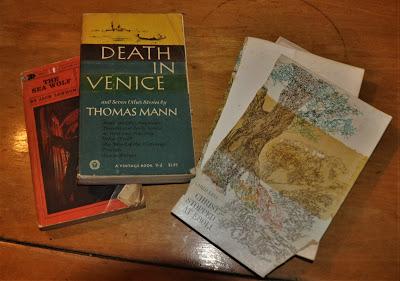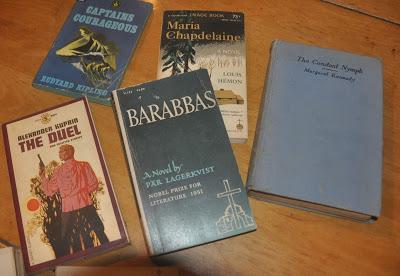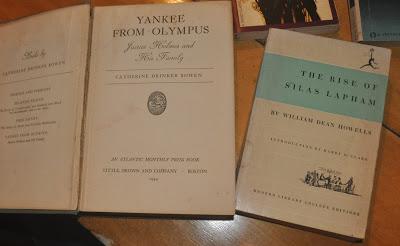
In the never-ending battle to de-clutter and de-accession, I found myself pulling books from our living room shelves in order to make room for some big coffee table books that are no longer safe on the coffee table when Josie is rambling about. And though most are elderly and crumbling paperbacks that even the library book sale probably doesn't want, I have trouble just throwing them out. So I've set myself the task of reading them first. Or reading the first chapter, at least. If I really am bored, I won't continue. The Sea Wolf and Captains Courageous are books I taught to First or Second Form classes (7th or 8th grade) when I taught at Berkeley Prep about fifty years ago. Death in Venice, Barabbas, and The Rise of Silas Lapham are from my undergraduate studies -- even longer ago. As I recall, I liked the first two and disliked Silas. But maybe my tastes have changed.

I think the other books came from John's father and I've never read them, except for The Constant Nymph of which I have a hazy (and positive) memory. When I picked up Christ Stopped at Eboli , I was pleasantly surprised to find that it wasn't, as I'd always supposed from the title, a soppy book about a miraculous visit. Instead, it's the story of a man's year as a political prisoner in a remote town in southern Italy. The title's meaning is that Christ never got to Eboli "which means, in effect, that they (the people of Eboli) have been bypassed by Christianity, by morality, by history itself." As they say, you can't judge a book by its cover.

